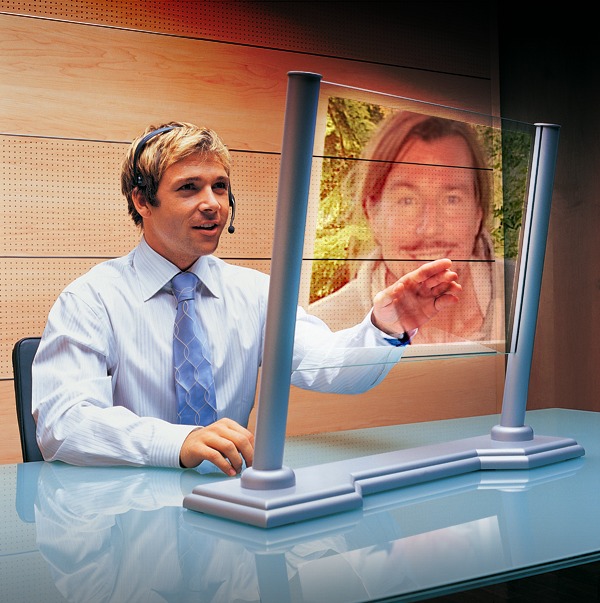
image courtesy photo505.com
How does one write a bio when one is convinced the self is an illusion, a construct of the brain with no basis in reality? If the character that appears to be Dave Pollard actually has no free will, choice, volition, agency, control over or responsibility for anything that has happened in his apparent life, how can a bio even be said to be ‘his’?
If you’re reading this because you want to know more about ‘me’, I suppose ‘I’ can at least offer a summary of the things that have apparently happened to, or because of, ‘me’, though ‘I’ am now quite sure ‘I’ really had nothing to do with any of them: They are, in the circumstances, the only things that could have happened. ‘I’ can also list some of the apparent characteristics, entrained and conditioned beliefs of this character.
Things apparently done by the character Dave Pollard (though ‘he’ had no choice in the matter):
- Born in 1951, lived in various parts of Canada, was married for 27 years to a woman he remains on good terms with, and has two wonderful step-children, four grandchildren and two great-grandchildren he is immensely proud of.
- Author since 2003 of a blog How to Save the World, described as a “chronicle of civilization’s collapse, creative works and essays on our culture; a trail of crumbs, runes and exclamations along the path in search of a better way to live and make a living, and a better understanding of human nature and how the world really works.” 8000 pages and counting, with a suggested reading list and ‘best articles’ list.
- Wrote a book called Finding the Sweet Spot: A Natural Entrepreneur’s Guide to Responsible, Sustainable, Joyful Work in 2008, and co-authored Group Works: A Pattern Language for Bringing Life to Meetings and Other Gatherings in 2011.
- Since resigning from 35 years’ paid work, mostly as an advisor to small enterprises, and moving to BC in 2010, he’s worked with the local Intentional Community and Transition movements, the local Arts Council, and various international networks of artists and students of culture dedicated to chronicling and preparing for industrial civilization’s collapse over the course of this century.
- Currently living in Coquitlam BC in the guise of a hedonistic, vegan, unspiritual, insatiably curious, skeptical, deschooled, and comfortably retired person. Aspiring, in spite of his ‘self’, to be a kinder, more loving, compassionate, playful, compersive, sympathetic, equanimous, joyful pessimist. And enjoying the company of two wonderful, incredibly intelligent women, who are also my best friends.
Things apparently learned by and believed by the character Dave Pollard (though ‘he’ had no choice in the matter):
- Pollard’s Law of Human Behaviour: Humans have apparently evolved to do what they must (the personal, unavoidable imperatives of the moment), then do what’s easy, and then do what’s fun. There is never time left for things that are seen as merely important. Social, political and economic change happens only when the old generation dies and a new generation with different entrained beliefs and imperatives fills the power vacuum. We have evolved to be a collaborative and caring species, and we are all doing our best — we cannot do otherwise.
- Pollard’s Law of Complexity: Things are the way they are for a reason. To change something, it helps to know that reason. If that reason is complex (and it usually is), success at truly understanding and changing it is unlikely, and developing workarounds and adapting to it is probably a better strategy. Complex systems evolve to self-sustain and resist reform until they finally collapse. For that reason, the systems of global industrial civilization culture are now collapsing rapidly and inevitably, producing the sixth great extinction of life on Earth.
- Pollard’s Law of Human Beliefs: We believe what we want to believe, not what is actually true. We want to believe in happy endings, simple answers, the inevitability of progress, self-control, karma, responsibility, destiny, miracles, a proper order of things, the power of love, and infinite human capacity and agency. Most of us want to believe in a higher power that can step in when we falter. We want to believe what those in our circles of trust believe (even if it’s crazy, gaslighting or propaganda). So we tend to seek sources that reinforce those beliefs and ignore those that undermine or unsettle them. Our hopes and expectations are determined by those beliefs. Our worldview is the sum of those beliefs, hopes and expectations, and bears no necessary resemblance to truth or reality. This invented reality is the only way we can make sense of a world that is vastly too complex to ever make sense of.
- The World After Us: What will be left after collapse, besides a devastated and exhausted planet, will be a much smaller (and thereafter probably declining) human population, struggling to relearn how to live healthy, sustainable, resilient lives in local self-sufficient communities. The rest of life on Earth will recover and do just fine without us.
- The Disease of Self-Consciousness: The socially reinforced illusion of the separate self, and all its trappings (belief in free will, choice, control, responsibility, agency, volition, the existence of subjects and objects in separate space and time) arose evolutionarily as an advanced survival instinct in humans, and identification with this illusion is the source of almost all human suffering (though not all pain, anger, or fear). It is perhaps also the source of the incredible violence and destruction wreaked by us ‘self-inflicted’ creatures. Without the illusory self, all there is, is this, and it’s magical, unknowable, wondrous and astonishing, with no need for a spirit, a higher consciousness, or purpose or meaning. It just is… amazing. But don’t ask ‘me’ about it.
The author, having no ‘self’-control, has no idea what the future holds for ‘him’, and will continue to do the only thing ‘he’ can do as each situation arises. Stay tuned.




